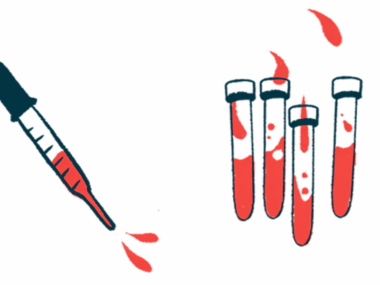Parenting a teen with a bleeding disorder can cause dislike
Raising a teenage son isn't easy — especially when hemophilia's involved
Written by |

“I know, I know” is repeated in my home numerous times daily. When I hear these words from my 17-year-old son, Caeleb, I want to run away screaming. No, you don’t know!
The teenage years are not my favorite. Was I this way when I was a teenager? Unfortunately, I was. My claims to fame included the art of the eye roll and slamming doors. I still wonder why my mother didn’t take the door off the hinges. (Yes, I’ve done this.)
As a parent, I want to help my sons in every way possible. There are many lessons for young people to learn as they evolve from teenagers into young adults. I see the path Caeleb is taking, and I want to give him advice. I’ve learned lessons the hard way, and I want to help him avoid pitfalls when possible.
For example, Caeleb takes several daily medications, as well as twice-monthly injections for his hemophilia. He has a pill box that he sets up each week. He’s good about taking his morning medications, but the evening ones aren’t as routine. When I ask if he’s taken his meds, there’s no pause before the “I know, I know,” and he then gets angry with me.
Living with a chronic illness involves many things that other people don’t always understand. Not many teenagers give themselves injections each month, for instance, nor do many take medications for chronic pain. Caeleb must make adjustments so he can live life to the fullest, but this lesson is difficult for my son to grasp.
I know, I know.
Most parents forget that teens’ brains are not fully developed during these trying years. According to an article on Exploring Your Mind, “the maturation of the prefrontal cortex won’t be complete until 21-25 years of age.”
The teenage years are when they’re are trying to find their identity. What makes me tick? Where am I going? These are significant questions to consider at a young age. I need to put myself in Caeleb’s shoes and think about the many possibilities his future holds, but it’s overwhelming for me. I need to give my son some grace.
Is there something wrong with me? I love my son with all my heart, but I don’t like him right now. Thankfully, when I share this sentiment with friends, they nod in understanding and assure me that things will improve.
On the other end of the spectrum, my adult son, Julian, is 26 years old, lives on his own, and is completing his college degree. He also had difficult times in his teenage years. Again, I thought I was doing the whole parenting thing wrong; it took me years to accept that all I could do was give my best guidance. Regardless of age, kids will make their own decisions. As an adult, I’m here to support my children.
A few weeks ago, Julian called me and said, “Mom, I want to thank you for something.”
“OK, son, for what?” I replied.
“I didn’t realize it when I was younger, but thank you for teaching me how to cook.” My heart exploded with gratitude.
As parents, it’s easy to be angry and frustrated with our teens’ decisions.
Take it from me — you will like them again.
Note: Hemophilia News Today is strictly a news and information website about the disease. It does not provide medical advice, diagnosis, or treatment. This content is not intended to be a substitute for professional medical advice, diagnosis, or treatment. Always seek the advice of your physician or another qualified health provider with any questions you may have regarding a medical condition. Never disregard professional medical advice or delay in seeking it because of something you have read on this website. The opinions expressed in this column are not those of Hemophilia News Today or its parent company, Bionews, and are intended to spark discussion about issues pertaining to hemophilia.




Leave a comment
Fill in the required fields to post. Your email address will not be published.